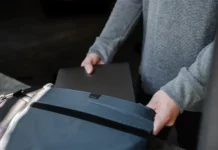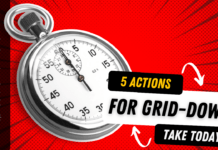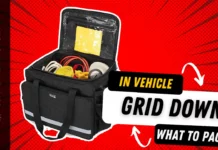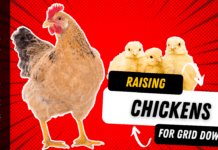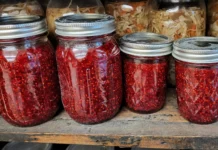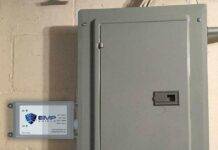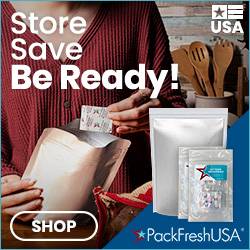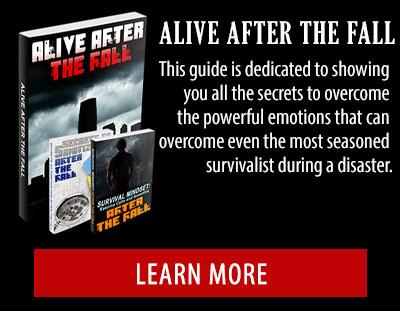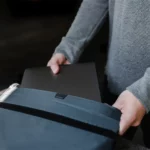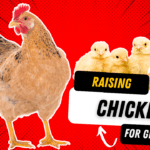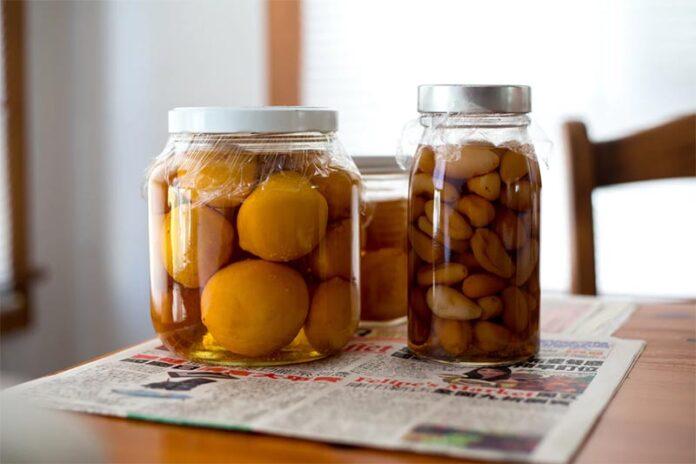
Any prepper worth his/her salt knows that one absolutely must have food stored away for any possible emergency. During a time of crisis, you are your own best friend. The supermarket shelves may be empty or the store itself may be closed. If you’re unprepared, you’ll probably end up going hungry.
However, storing food for an emergency requires careful planning. Hiding a box of Twinkies under your bed is not going to cut it. You need enough food for you and your family. The food has to be nutritious and several other factors must be considered.
In this article, you’ll be given 6 questions to ask yourself when you’re storing food for a possible crisis. Each question touches upon one of the factors for consideration. By asking yourself these questions and planning accordingly, you’ll be on the right track and will not expend time, money or energy unnecessarily.
- What foods will you store?
This is probably the most important question of the lot. You must choose foods that meet your nutritional requirements and provides your body the fuel it needs. Now more than ever before you need to pay attention to your diet due to the limited variety you have.
Stocking up on pasta will be great. They last long and can be prepared with boiling water. It’s easy and provides you with carbohydrates. This is an ideal type of food to store. You’ll need to look for more of these foods that not only fit in with your nutritional requirements but also make the cut as being a ‘prepper food’ that’s long-lasting.
- How much are you going to store?
Ideally, you should store about 30 days of food for yourself. If you have a family, the amount of food you’ll need to store is going to be quite a lot. You’ll need to take into account their tastes and considerations too. If you have pets, you need to store food for them too.
- What’s your budget?
Let’s face the hard truth. Initially, when you’re building up your food supplies, it’s not going to be cheap. You’ll need to buy more supplies than you’re accustomed to just for storage purposes. If you can afford it, that’s great. If you can’t, it’s going to add pressure on your budget and you’ll need to plan accordingly.
The good news is that once you have your food stockpiled, it gets easier because you can always rotate your stocks. You’ll consume the food from your supplies and your grocery shopping will be to replenish your stored food.
- Where and how will you store them?
You need space to store your food. Preferably the location you choose to store your food should be clean, dry and not exposed to heat or direct sunlight. It goes without saying that there should be no pests or rodents present or they’ll have a feast at your expense.
You’ll also need to think if you want to use shelves for the canned food. If you’re doing your own food preservation in mason jars, you’ll need a place to store those too. All your food should be tightly sealed and stored in a way that reduces any risk of contamination.
- How long will your supplies last?
While it’s good to prepare for at least 30 days, if all you can prepare for is 14 days, start working on that first. What’s important is that you know where you stand. In the event a crisis hits, you’ll know exactly how much food you have. You will be able to ration the food out to last longer instead of eating everything up because you’re stressed out or hungry.
- Planning to travel?
It’s a good idea to have supplies put aside just in case you need to evacuate your home. If there’s an earthquake and your home is unsafe, you’ll need to leave. Having a list of foods that you can immediately pack and take with you will take the thinking out of the equation and speed things up.
Of course, the rations you put aside must be lightweight with minimum packaging so they take up less space. Ideally, they should meet your nutrition requirements. Keeping a bottle of multivitamins on standby is a good idea and make sure you have comfort foods such as chocolate that you can take with you.
These 6 questions will make you more aware of your food prepping. Take everything into consideration from nutrition to weight to cost and even if anyone in your family is allergic to certain food. By planning well ahead, you’ll be much better prepared and not need to worry about food or sustenance should crisis strike.



